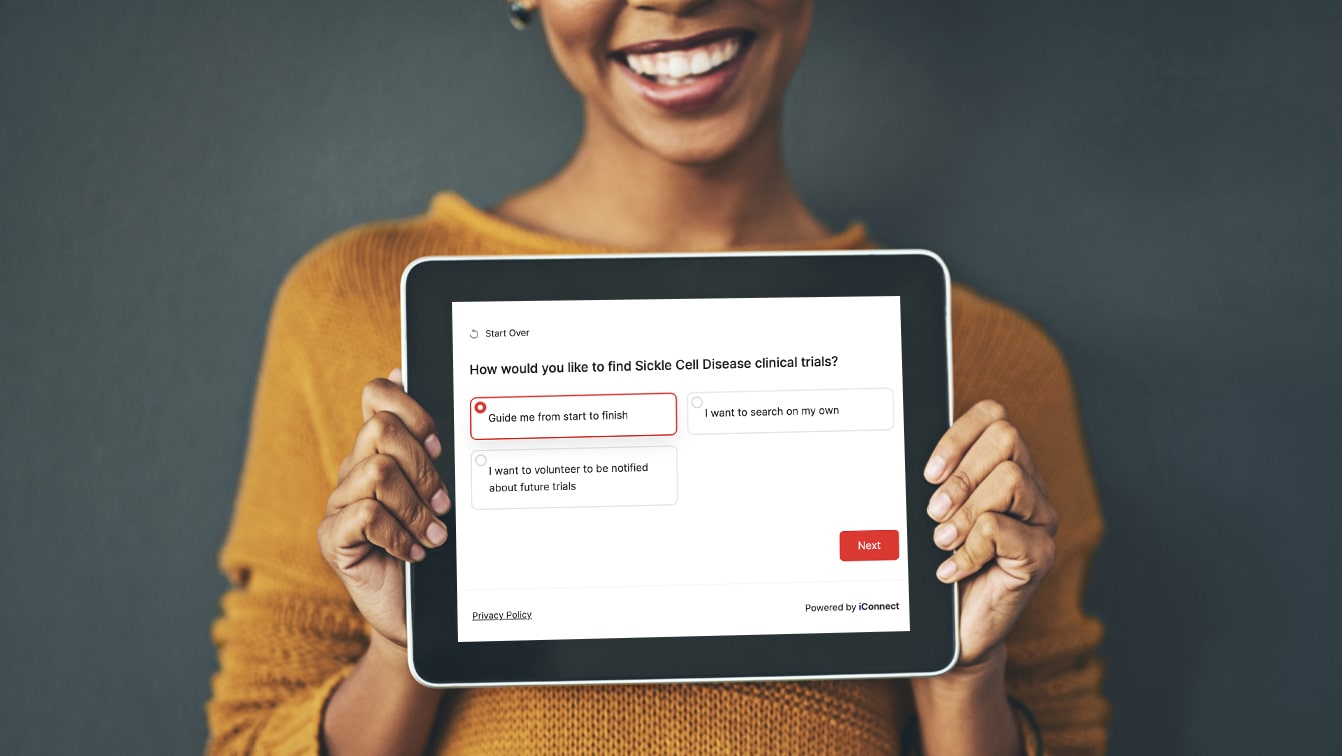Clinical studies are looking for participants so that they can conduct the research necessary to improve understanding about potential treatments.

More Hope on the Horizon
Clinical studies happen in phases, as researchers learn more about the safety and effectiveness of the new drug for humans. Watch to learn about the three main phases of clinical trials. Clinical trials are research studies that involve people. Understanding what they are can help you decide if a clinical trial might be an option for you or a loved one

Clinical Trial Finder
Sickle Cell Disease Association of America’s Clinical Trial Finder was created in partnership with Forma Therapeutics. Our Clinical Trial Finder is a centralized, simple-to-navigate resource that helps people with sickle cell disease, their families and caregivers find clinical trials. Clinical trials help pharmaceutical companies and researchers develop new sickle cell treatments.
Talk to your doctor.
It's easy!
Take our “Ask Your Doctor” sheet to your physician to start a conversation about clinical studies. There are 5 questions that will help you learn more about studies in your area.
Want more information about clinical studies?
ClinicalTrials.gov is a database of privately and publicly funded clinical studies conducted around the world. Explore 259,383 research studies in all 50 states and in 201 countries.
ClinicalTrials.gov is a resource provided by the U.S. National Library of Medicine.
The National Institutes of Health (NIH), a part of the U.S. Department of Health and Human Services, is the nation’s medical research agency — making important discoveries that improve health and save lives.
FDA is an agency within the Department of Health and Human Services.
The FDA's organization consists of the Office of the Commissioner and four directorates overseeing the core functions of the agency: Medical Products and Tobacco, Foods, Global Regulatory Operations and Policy, and Operations.
CDC laboratories routinely work with some of the most deadly germs in the world – identifying health threats and conducting vital public health research. CDC constantly develops and reviews extensive laboratory guidelines and procedures to protect both the public and laboratory workers.
